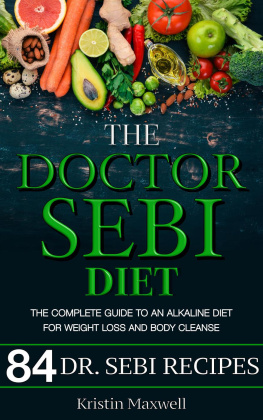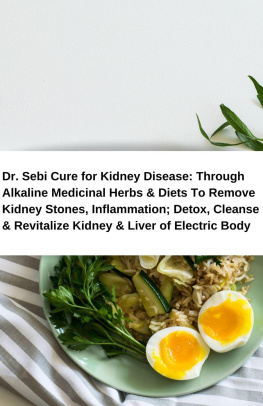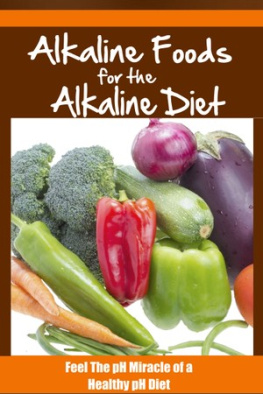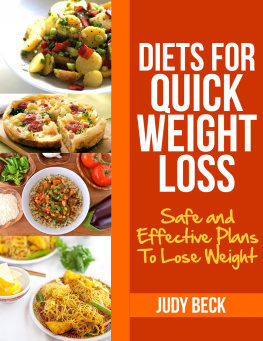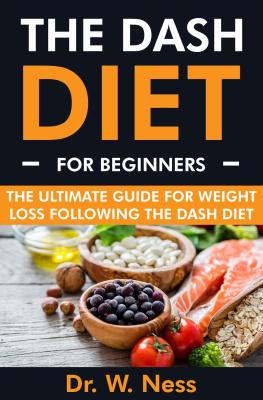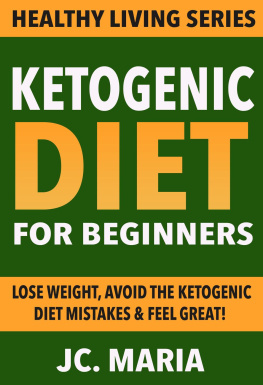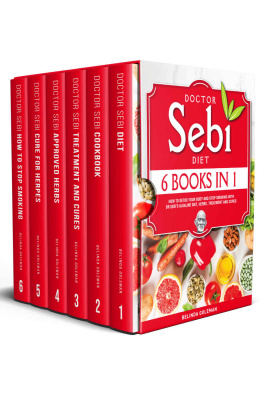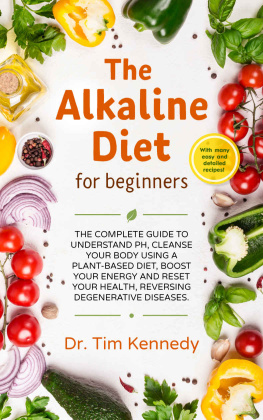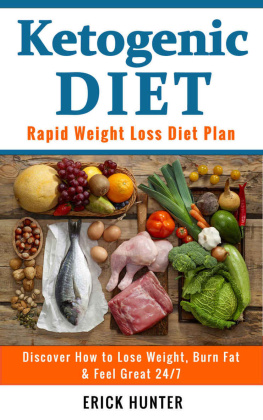The Doctor Sebi Diet: The Complete Guide To An Alkaline Diet For Weight Loss And Body Cleanse
Kristin Maxwell
Published by Kristin Maxwell, 2020.
While every precaution has been taken in the preparation of this book, the publisher assumes no responsibility for errors or omissions, or for damages resulting from the use of the information contained herein.
THE DOCTOR SEBI DIET: THE COMPLETE GUIDE TO AN ALKALINE DIET FOR WEIGHT LOSS AND BODY CLEANSE
First edition. June 8, 2020.
Copyright 2020 Kristin Maxwell.
ISBN: 978-1393110293
Written by Kristin Maxwell.
10 9 8 7 6 5 4 3 2 1
THE Doctor Sebi Diet
Copyright 2020 by Kristin Maxwell
All rights reserved.
This document is geared towards providing exact and reliable information with regards to the topic and issue covered. The publication is sold with the idea that the publisher is not required to render accounting, officially permitted, or otherwise, qualified services. If advice is necessary, legal or professional, a practiced individual in the profession should be ordered.
- From a Declaration of Principles which was accepted and approved equally by a Committee of the American Bar Association and a Committee of Publishers and Associations.
In no way is it legal to reproduce, duplicate, or transmit any part of this document in either electronic means or in printed format. Recording of this publication is strictly prohibited and any storage of this document is not allowed unless with written permission from the publisher. All rights reserved.
The information provided herein is stated to be truthful and consistent, in that any liability, in terms of inattention or otherwise, by any usage or abuse of any policies, processes, or directions contained within is the solitary and utter responsibility of the recipient reader. Under no circumstances will any legal responsibility or blame be held against the publisher for any reparation, damages, or monetary loss due to the information herein, either directly or indirectly.
Respective authors own all copyrights not held by the publisher.
The information herein is offered for informational purposes solely, and is universal as so. The presentation of the information is without contract or any type of guarantee assurance.
The trademarks that are used are without any consent, and the publication of the trademark is without permission or backing by the trademark owner. All trademarks and brands within this book are for clarifying purposes only and are the owned by the owners themselves, not affiliated with this document
Table of Contents
CHAPTER ONE
WHAT IS A WHOLE-FOOD, PLANT-BASED DIET AND HOW TO START IT?
A
plant-based diet is a diet where food is consumed from only plant sources. This can include organic products, vegetables, grains, nuts and meat substitutes, for example, soy products.
Individuals regularly have different understandings of what a plant-based diet is. A few people include limited quantities of animal products, for example, meat and fish, while eating mainly foods from plants they are known as semi-vegetarians or follow a flexitarian diet. When people omit meat from the diet yet include fish, they are known as pescatarian. Individuals who don't eat meat or fish yet at the same time include dairy and eggs are called lacto-vegetarians, while those who omit all animal products, including dairy, eggs, honey and gelatin are called vegans.
Individuals following plant-based diets, who eat a wide assortment of natural products, vegetables and soy products, are probably going to think that it's simpler to meet their five-a-day target. Because of this, they consume great amounts of fiber and the vitamins and minerals that are available in foods grown from the ground, including folate, vitamin C and potassium, which are all significant for good health.
In any case, it is significant to note that eating a plant-based diet doesn't naturally signify a good diet, especially with regards to the type of foods eaten and nutrients received from them. In fact, items such as refined sugar, white flour and certain vegetable fats can all be named plant-based as they are vegan, however, this doesn't imply that they should make up the main part of a healthy diet.
One of the most remarkable advances you can take to improve your wellbeing, support energy levels, and prevent chronic diseases is to switch to a plant-based diet. In the event that you've read Forks Over Knives , youd realize that science shows changing your food intake is an incredible method to live longer, help the earth, and lessen your risk of becoming ill.
You're most likely reasoning that moving to a plant-based diet seems like a good thought, however, you don't have any idea about where to begin. Try not to stress yourself because you're in the ideal placewe have the tools, understanding, and skill to make the improvement simple and appealing.
A plant-based diet consists of whole foods from common food sources that are not vigorously prepared. This implies whole or raw preparations. Plant-based foods originate from plants, and no animal products, for example, meat, milk, eggs, or honey, are eaten. A plant-based diet provides your body with the nourishment it needs by concentrating on whole, minimally processed plant foods.
There's scientific evidence that numerous chronic diseases can be controlled or diminished through changing to a whole foods, plant-based diet. Logical research featured in the milestone book, The China Study, shows that a plant-based diet can decrease the risk of type 2 diabetes, heart disease, specific types of disorders, and other major illnesses. Numerous individuals additionally research an increase in overall health, more energy, less inflammation, and other health benefits after making the switch.
PLANT-BASED FOODS
Here's a quick review of the significant food groups you'll enjoy on a plant-based diet:
1. Organic products: any kind of organic product including apples, bananas, grapes, strawberries, citrus products, and so on.
2. Vegetables: a lot of veggies including peppers, corn, avocados, lettuce, spinach, kale, peas, collards, and so on.
3. Tubers: root vegetables like potatoes, carrots, parsnips, yams, beets, and so on.
Whole grains: grains, oats, and different starches in their whole structure, for example, quinoa, brown rice, millet, whole wheat, oats, grain, and so on. Indeed, even popcorn is a whole grain.
4. Vegetables: beans of any sort, in addition to lentils, pulses, and similar foods.
There are a lot of different foods you can likewise enjoyincluding nuts, seeds, tofu, tempeh, whole grain flour and breads, and plant-based milks. Notwithstanding, we suggest eating these foods with some restraint since they are more calorie-rich and can add to weight gain.
THE BENEFITS OF PLANT-BASED DIETS
There are a few significant advantages to switching to plant-based foods, all supported by scientific evidence. These advantages include:

